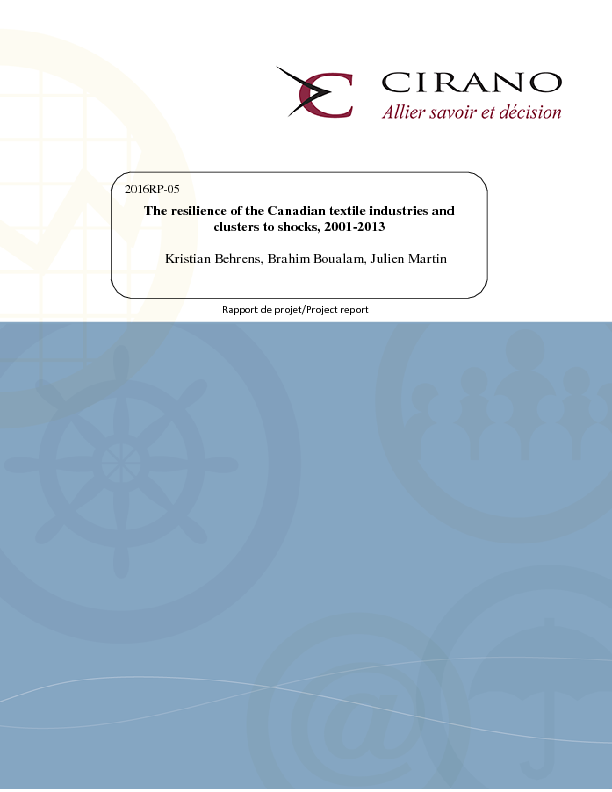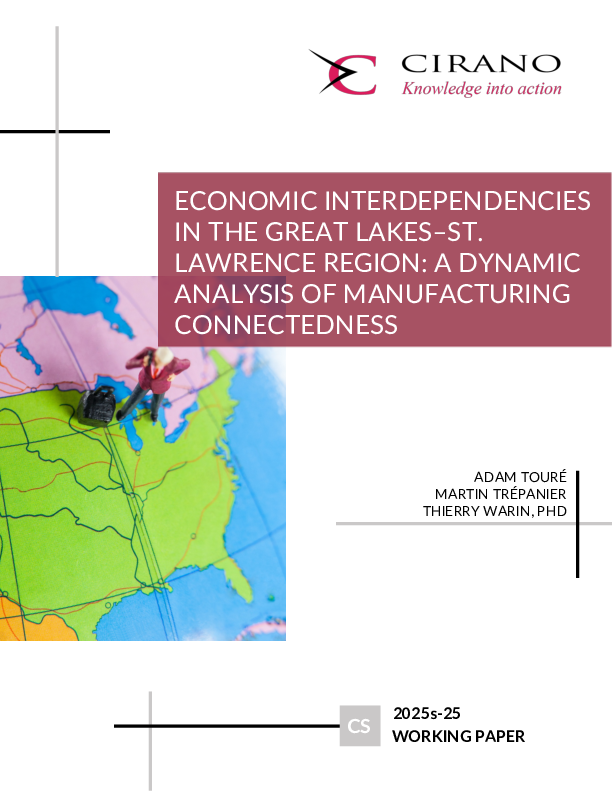The resilience of the Canadian textile industries and clusters to shocks, 2001-2013
Understanding and assessing the role played by geographical clusters in the resilience of industries' and firms' to adverse economic shocks is important to inform policy and to devise regional development strategies. Yet, surprisingly little is known about that topic. This report aims to fill this gap. To this end, we first use recent microgeographic techniques to measure the degree of clustering in the Canadian textile and clothing (T&C) industry, and to detect geographical clusters of plants. We then dissect the changes in that industry (exit of plants, employment changes, productivity, industry switching, and geographical relocation) between 2001 and 2013. The T&C industry is geographically strongly clustered and subject to large industry-specific shocks (the end of the Multi Fibre Arrangement; mfa) during our study period, thus providing an ideal laboratory to examine the role of geographical clusters for resilience. We find a very limited impact of the initial level of clustering on subsequent changes in either industry-level employment, productivity, or revenue. Using detailed geocoded plant-level data, we further find that plants in clusters were more likely to exit than plants that were not part of a cluster and they downsized their employment more than non-clustered plants. These results suggest that clusters need not make industries or plants more resilient to adverse economic shocks. Furthermore, there is a composition effect of clusters. In the T&C industry, clusters contain larger plants that react to shocks by exiting or downsizing. In this respect, clusters were actually less resilient to shocks in the sense of providing local employment stability, which is usually the key concern for local policy makers. Plants in clusters were, however, more likely to switch into different industries following the end of the mfa. This suggests that being part of a cluster may help surviving plants to adapt in the event of a negative shock.




